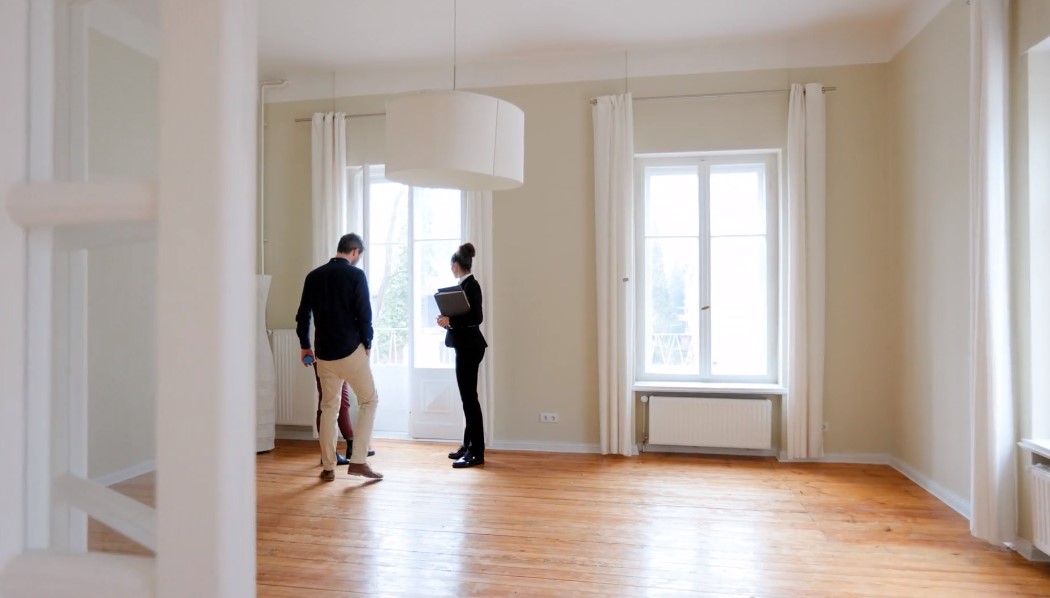As a tenant in NYC, it’s important to stay informed about your rights and the current regulations concerning broker fees. These laws impact your financial obligations when entering a rental agreement and protect you from being overcharged.
Being well-informed also places you in a better position to negotiate with landlords and real estate agents, ensuring that any broker fees you’re responsible for are fair and in accordance with the law.
Recently, there has been attention on tenant rights and changes to the traditional structure of broker fees, with efforts to shift financial responsibilities and provide more transparency in real estate transactions.
Key Takeaways
- Broker fees in NYC historically range from 12 to 15% of the annual rent.
- Recent regulations limit broker fees to 0.3–15% of the first year’s rent.
- Tenants have rights under new regulations, including caps on security deposits and application fees.
- Landlords and real estate agents must adapt to these changes, potentially absorbing broker fees and adjusting rental pricing strategies.
- To determine broker fee responsibility, tenants should inquire upfront.
- If overcharged, tenants can review leases, gather documentation, consult the law, and contact brokers directly.
Overview
When you’re on the hunt for an apartment in New York City, understanding broker fees is crucial. A broker fee is a charge paid to real estate agents for their services, typically for connecting landlords with potential tenants.
- Broker Fees: These fees could range from 12 to 15% of the annual rent, which you, as the tenant, would pay upon signing your lease according to Lemonade Insurance.
- Recent Changes: There has been significant controversy and changes to these regulations in recent times, aiming to reduce the financial burden on renters.
What You Should Know
- Regulations: State regulations previously limited broker fees to a range of 0.3–15% of the first year’s rent. Whether the broker was hired by you or the landlord did not affect this as highlighted by Cityrealty.
- New Guidelines: To understand the latest law and its implications, keeping up-to-date with the most recent guidelines issued by the New York Department of State is essential.
- Payment Responsibilities: Under these guidelines, it was clarified who should bear the cost of the broker fee—whether it’s you or the landlord. This clarification greatly affects your budgeting for an apartment.
For an apartment with a monthly rent of $3,000 and a broker fee of 15%, you could be paying a broker fee of $5,400. [$3,000 x 12 months x 15% = $5,400.]
Tenant Rights Under the New Regulation

In New York City, recent changes to broker fee regulations have important implications for your tenant rights. Understanding these changes is crucial to ensuring you are not overcharged during your apartment hunt.
Landlords are now limited to requesting a maximum of one month’s rent for a security deposit. This change helps reduce the upfront costs for tenants moving into a new apartment.
Broker Fee Transparency
If you’re required to pay a broker fee, agents must clearly disclose all fees upfront before you sign a lease. These fees should be reasonable and reflect the actual cost of services provided.
- Tenants were responsible for broker fees of 12 to 15 percent of the annual rent. Under the new rules, the party who hires the broker typically pays the fee. In many cases, this shifts the burden away from tenants to landlords.
Application fees are now capped at $20. This includes background and credit check fees, helping to keep application costs low.
Your right to a safe and habitable living environment remains firmly in place. Landlords must address maintenance issues promptly and maintain the quality of the property.
Implications for Landlords and Agents

When you’re a landlord or a real estate agent in NYC, understanding the city’s broker fee laws is crucial. These regulations have a direct impact on your business operations and your interaction with potential tenants.
Landlords are now more likely to absorb the cost of broker fees, especially since recent interpretations of the 2019 rent law ban tenants from bearing this expense in certain situations. This could affect your profit margins and might necessitate an adjustment in your budgeting and rental pricing strategies.
As an agent, it’s also essential to note any shifts in the industry’s standard practices. Polices such as the potentially changing landscapes on broker commissions which are limited to between 0.3-15% of the total rent require you to stay informed and adapt.
This might mean increasing your efficiency, providing additional services, or improving client relationships to maintain your income.
- Keep abreast of any legal changes
- Align business models with regulatory compliance
- Adapt service offerings and fee structures as needed
Remember, these broker fees are not just about your revenue—they play a significant role in the dynamics of the real estate market and can influence a client’s decision to rent or not.
How to Determine Broker Fee Responsibility

When you’re searching for a rental in New York City, understanding who is responsible for the broker fee is crucial.
- Tenant Responsibility: Typically, if you enlisted the services of a broker to find an apartment, you are expected to pay the broker fee, which is usually between 10 to 15 percent of the annual rent according to NY Rent Own Sell.
- Landlord Responsibility: In some cases, especially in a market with many available listings, landlords may agree to pay the broker fee to attract more applicants.
To determine the responsibility for the broker fee:
- Ask upfront when inquiring about an apartment; clarify who pays the broker fee.
- Examine the lease agreement, as it should stipulate who is responsible for the broker fee.
- Look for “no-fee” listings, indicating that the landlord covers the broker fee.
Steps to Take if Overcharged

If you suspect you’ve been overcharged a broker’s fee in NYC, there are several steps you can take to address the issue:
- Initially, look over your lease and any agreements regarding the broker’s fee. Ensure you understand the terms you’ve agreed to.
- Collect all related documentation, such as receipts and emails, to support your claim that the fee charged was higher than agreed upon or legally permissible.
- Educate yourself on the current regulations surrounding broker fees to confirm if you have indeed been overcharged.
- Reach out to the broker to discuss the discrepancy. It’s possible it could be resolved amicably and quickly.
- If the broker is uncooperative, you may file a complaint with the New York State Division of Licensing Services. They oversee the conduct of brokers and can take disciplinary action if necessary.
- For legal guidance and to explore further action, consult with a tenant attorney who specializes in NYC housing laws.
- Consider joining a tenants’ union for support from other renters and additional resources.
It’s important to act promptly and keep a record of all communications and attempts to resolve the issue.
Grandfathered Agreements

A grandfathered agreement refers to a lease or rental situation that continues to operate under the old rules or laws that were in place when the agreement was initially signed.
In the context of broker fees, if your rental agreement was signed before new regulations came into effect, it’s possible that certain terms such as the obligation to pay a broker fee may still apply to you. Here’s what you should know:
- If your lease was signed while it was still standard for tenants to pay broker fees, you may be legally obliged to continue paying these fees until your current lease expires.
- Upon renewal of your lease, the terms may be subject to the most current laws, which could alter your financial obligations.
- You have the ability to negotiate the terms of your lease upon renewal, including the continuation or removal of broker fees if they were part of the original agreement.
Broker Agreements

- Your broker is there to facilitate connections between landlords and tenants, assist with paperwork, and offer guidance on apartment listings.
- Clarify all fee-related details upfront. Fees are negotiable and typically depend on the apartment’s rent. Confirm whether the fee is a flat rate or a percentage of the annual rent.
- Keep abreast of the latest legal developments impacting broker fees, such as the recently changed rules around NYC’s broker fees, to ensure compliance and understanding of who is responsible for the fee.
- Understand when the broker fee is due, which is usually upon lease signing. Be prepared to pay the fee along with first month’s rent and security deposit.
| Do’s | Don’ts |
|---|---|
| Ask for clarity on all fee-related terms | Assume the fee percentage or terms are non-negotiable |
| Research the broker’s reputation and track record | Forget to check for recent changes in broker fee laws |
| Budget for the broker fee in addition to other costs | Delay conversations about broker fees until lease signing |
Remember, broker fees are a significant part of the renting process in New York City, and understanding these agreements is crucial in managing your expectations and finances.
Legal Recourse for Violations
- Keep records of all payments and communication with the broker.
- File a complaint with the New York State Division of Licensing Services.
- Consult with an attorney to discuss your case. Some law firms focus on tenant rights in NYC.
- For claims below a specific monetary threshold, consider taking the broker to small claims court.
| Step | Action |
|---|---|
| 1. Documentation | Compile records of payments and communications. |
| 2. Filing Complaint | Submit a complaint to the Division of Licensing Services. |
| 3. Consult | Seek legal advice from a lawyer specializing in tenant rights. |
| 4. Court Action | File a case in small claims court if applicable. |
Note: Always double-check any actions with a legal professional, as the laws and your rights may have been updated since this guide’s publication.
FAQs
Final Words
Recent regulations aim to ease the financial burden on renters, with fees now limited to 0.3–15% of the first year’s rent.
Tenants have new rights, including caps on security deposits and application fees, while landlords and agents may need to absorb broker fees, adjusting their strategies accordingly.
It’s important for tenants to inquire about fee responsibility upfront and to take steps if overcharged, including reviewing leases, consulting laws, and contacting brokers directly.
Stay informed and negotiate when possible to navigate NYC’s rental market effectively.













